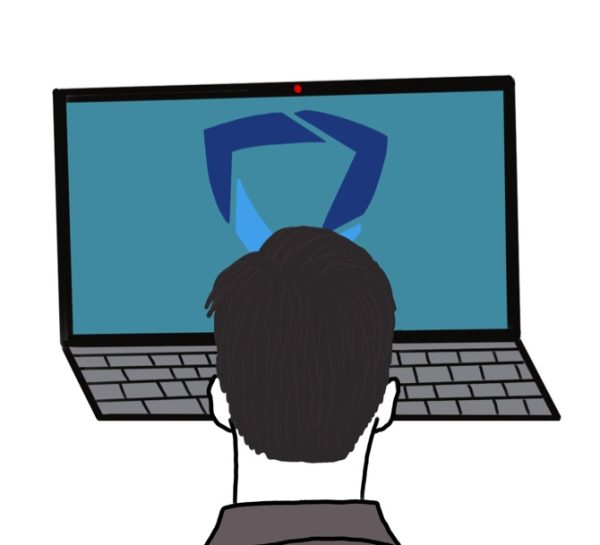“[In Marin], we are in a very specific community that is very college bound. I don’t think it’s questioned a lot. Over 90 percent of our graduates go to college in one form or another, whether it’s a two-year start or a four-year start,” Becky Bjursten, the college and career specialist, said.
The vast majority of Redwood students’ parents model the college track, as according to the September 2022 Bark survey, only seven percent of students report being the first in their family to plan to attend college.
Moreover, college is heavily ingrained into Redwood culture, both in classrooms and at home. According to the aforementioned Bark survey, 41 percent of Redwood students report hearing people talk about college at least once a day, with an additional 30 percent of the student body reporting they hear about it at least once a week.
John Mattern, Redwood’s music director for the past 19 years, commented on the heavy fixation on college he has observed for the past decade. While Mattern acknowledges the clear benefits of attending college, he also concedes that many of his students may not need to go to college right away, or even at all.
“I loved college. I [went to a four-year university and] went on to get my master’s degree, and I loved every bit of it. I was very focused on the music world, so I got a lot out of it. But, when somebody doesn’t know what they want to do, college won’t always help [them] find it, and [college] won’t always be the solution,” Mattern said. “I talk to my [students] pretty candidly about [their life after high school] sometimes — they might want to look at not going right into college.”
Additionally, Mattern noted the growing cost of college and how that potentially comes into play when determining whether to pursue a degree.
“I put three kids through college, and I’m still paying for it. They’re in their 30s. Now, it’s just gotten so expensive. I feel like if a kid doesn’t have a focus, [with] college being so expensive, then it isn’t the best route for [them],” Mattern said.

However, the payoff of earning a degree could be worth it for many. According to Consumer News and Business Channel, bachelor’s degree holders generally earn 84 percent more than those with only a high school diploma. However, only 45 percent of America’s workforce has a bachelor’s degree or higher, with 55 percent of the country’s workforce being overlooked by certain company positions and jobs due to their lack of diplomas.
There are plenty of options open to those without degrees worth considering. According to the Construction Association, 90 percent of construction companies nationwide are struggling to find experienced workers, which in many cases only requires a high school diploma in addition to some certifications.
Chris Cortines, who co-authored a recent report published by Washington State University in regard to recent labor statistics, vouched for alternate routes beyond the mainstream college track.
“Being more aware of other types of options may be exactly what [students] need,” Cortines said. “When you look at the types of wages that apprenticeships and other career areas pay, and the fact that you do not pay four years of tuition [but instead] you’re paid while you learn, these other paths need additional consideration.”
Bjursten corroborated Cortines’ sentiment, advocating for learning outside of just the classroom setting.
“While I’m a big believer in continuing education and lifelong learning, there are a lot of ways to do that, and [they] don’t have to be in a classroom. The right place for you to become who you want to be could be a community college, it can be an internship, it could be an apprenticeship or it could be taking a gap year,” Bjursten said.
Additionally, Bjursten emphasizes the importance of a cultural shift in Marin that emphasizes individual choices in making decisions about the future.
“As a community, we have to start valuing what is the right choice for each one of us individually,” Bjursten said.













